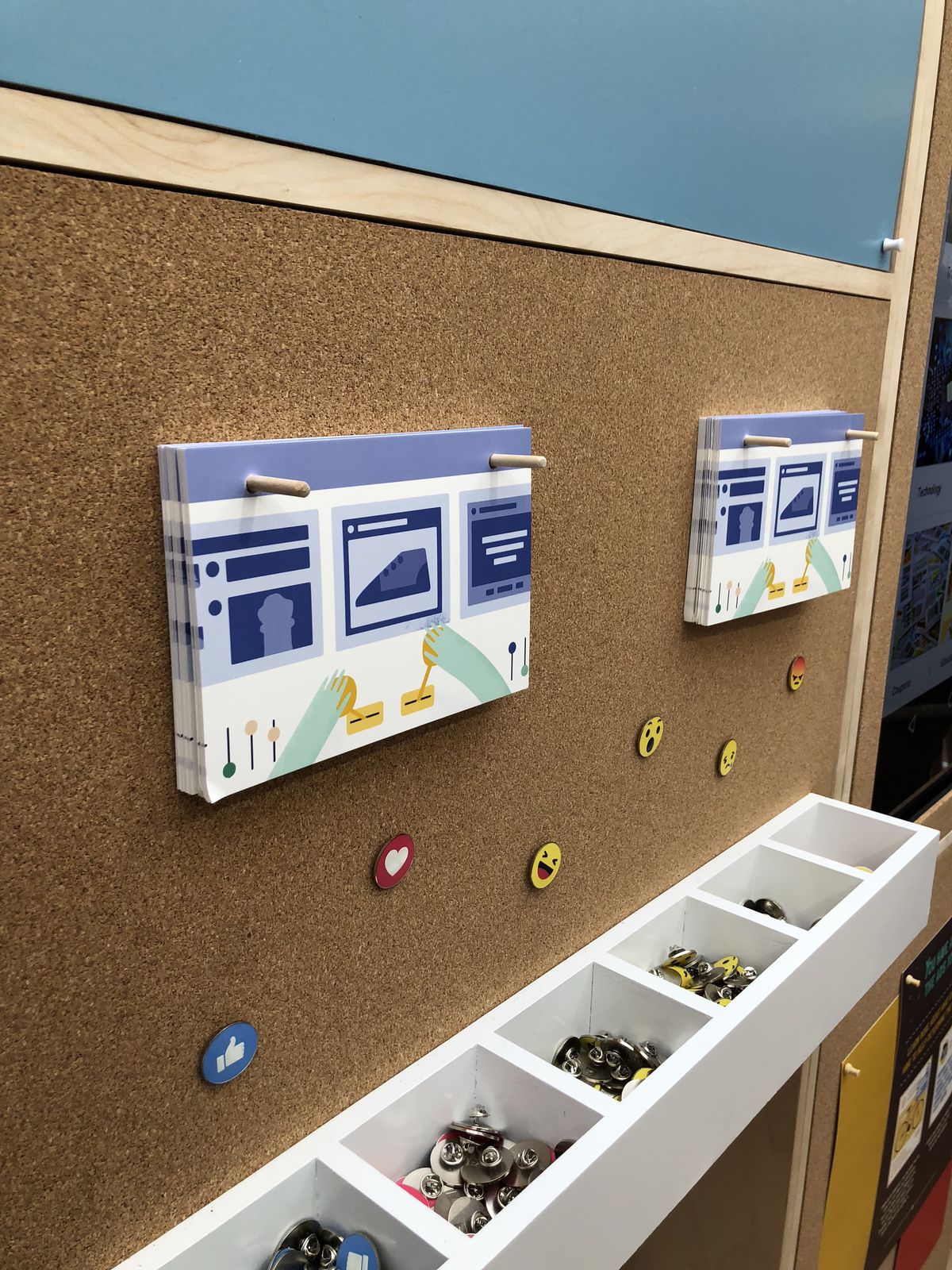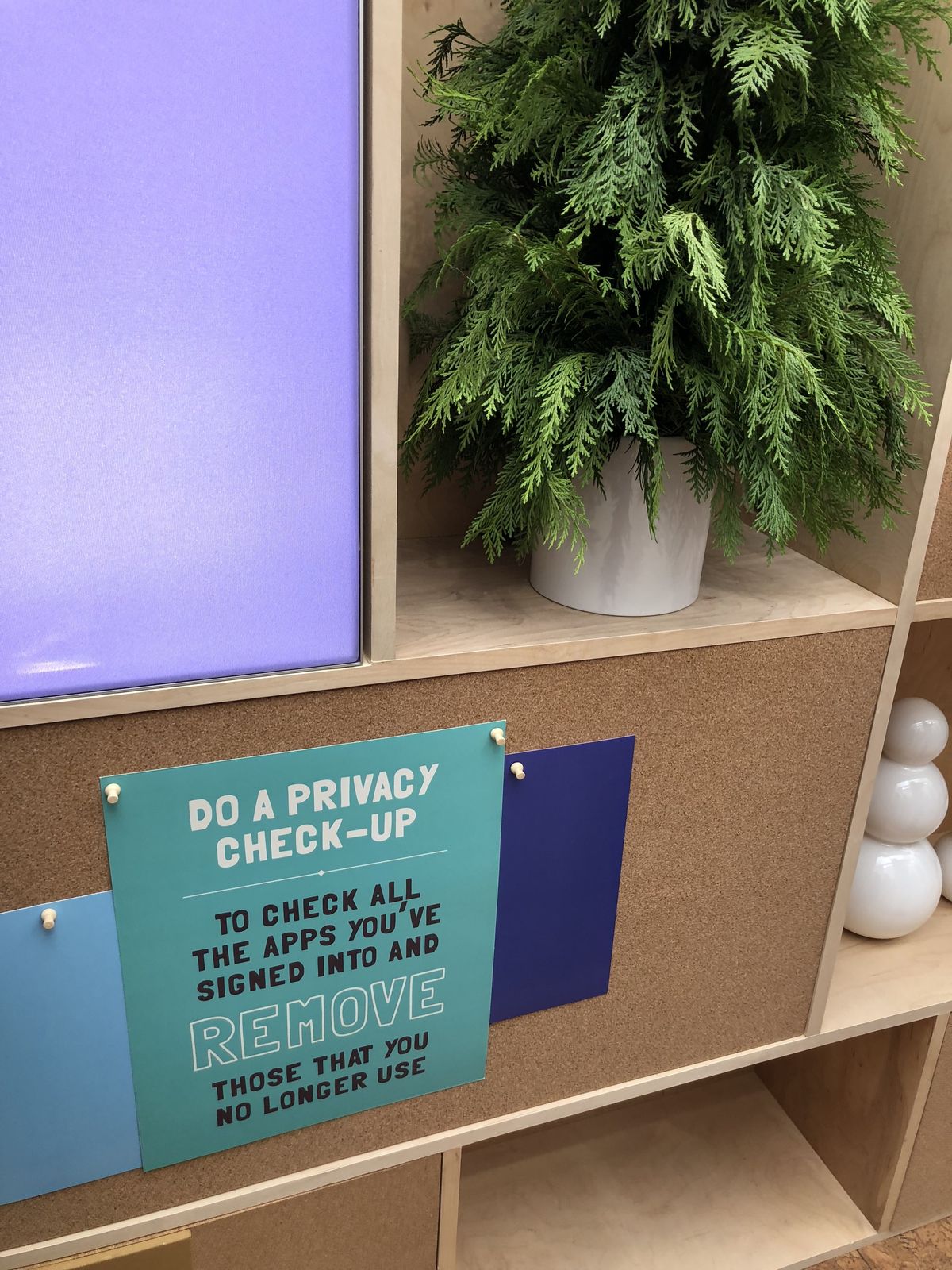Facebook’s track record with privacy this year has been catastrophic. In March, the company announced that it had suspended political analytics company Cambridge Analytica for collecting and sharing the personal data of 50 million users without their consent; it later amended that number to be closer to 87 million users. After something that monumental, how do you win users back? Host a 10-hour privacy-focused pop-up, apparently.
Facebook’s pop-up, a bright, tiny building with light wood paneling, sat a few feet off the holiday market path of Manhattan’s Bryant Park. The company’s name glowed from a clean bright light, while a sign nearby promised a place to “discover ways you can manage your privacy and ads.” In practice, this meant sipping on hot chocolate, complete with an f-shaped marshmallow, and browsing pamphlets.

Inside the structure, Facebook had two small stations on opposing sides, one for privacy and one for advertising. Small cakes sat on a table in the middle, while sets of emoji pins lured users over to booklets with tips like “protect your password,” or “if you don’t like something, delete it.” (Not present at the pop-up were directions on how to delete your Facebook account.)
At both stations, cards hung like oversized study notes sporting a cutesy illustration and a bit of text. The “Privacy Checkup” card explained how to manage settings in three steps: choose your audience for posts, review which profile info you want to share and who gets to see it, and review and remove apps or websites you’ve logged into Facebook with. The Ad Preferences card was similarly brief, explaining how to view your preferences and adjust them accordingly. Friendly, mostly female Facebook staff wandered around to answer questions newcomers might have.
The pop-up opened at 11AM on Thursday, mainly to a swell of journalists. In the hours around lunch, it was still filled with clicking cameras and interviewers who took up most of the space. As a handful of holiday shoppers wandered in, they made the most of the snack table before circling back up, wagon-style. One Facebook employee acknowledged that the pop-up had mostly catered to media so far, but they were hopeful that more ordinary users will trickle in as offices closed and the markets livened up. A Facebook brand ambassador earnestly offered a survey to people as they left; the majority so far, he said, had declined to offer their thoughts on how the event had changed their view of privacy and Facebook.

Facebook employees emphasized that the event was to promote safety and understanding in its customers. A hands-on experience or a face-to-face with another human might help an average user better understand what their data is actually worth. But the small scope of the pop-up, combined with essentially printing out instructions already available online, felt like a bizarre first step — especially when the location was designed to draw in holiday shoppers who were likely just seeking refuge from the cold.
Understanding where our data ends up, and how that information impacts our real lives is important. But in the wake of Cambridge Analytica, Facebook has already proven that the biggest threat to privacy is its own service. The average user may not understand what that data leak meant or even why it matters. If people have already stuck with the platform this long, a quick and dirty privacy session isn’t likely to sway their minds either way. All Facebook has to do is keep smiling. Have a cookie. And, as the pop-up’s exit mat cheerful said, it’s good to see you.
Photography by Megan Farokhmanesh / The Verge
https://www.theverge.com/2018/12/14/18139633/facebooks-privacy-pop-up-bryant-park

